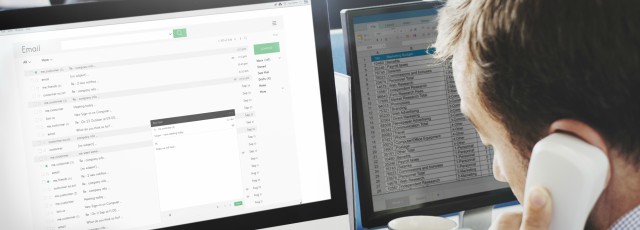
The Email Usage Policy provides guidelines for employees using corporate email addresses. It emphasizes appropriate and inappropriate uses, security measures, and the importance of maintaining professionalism. The policy also covers personal use limitations, email signatures, and potential disciplinary actions for violations.
This corporate email usage policy template is ready to be tailored to your company’s needs and should be considered a starting point for setting up your employment policies.
This email usage policy should include:

Our corporate email usage policy helps employees use their company email addresses appropriately. Email is essential to our everyday jobs. We want to ensure that our employees understand the limitations of using their corporate email accounts.
Our goal is to protect our confidential data from breaches and safeguard our reputation and technological property.
This policy applies to all employees, vendors and partners who are assigned (or given access to) a corporate email. This email may be assigned to an individual (e.g. employeename@companydomain) or department (e.g. [email protected].)
Corporate emails are powerful tools that help employees in their jobs. Employees should use their company email primarily for work-related purposes. However, we want to provide employees with some freedom to use their emails for personal reasons.
We will define what constitutes appropriate and inappropriate use.
Our employees represent our company whenever they use their corporate email address. They must not:
Our company has the right to monitor and archive corporate emails.
Employees are allowed to use their corporate email for work-related purposes without limitations. For example, employees can use their email to:
Employees are allowed to use their corporate email for some personal reasons. For example, employees can use their corporate email to:
Employees must adhere to this policy at all times, in addition to our confidentiality and data protection guidelines.
Email is often the medium of hacker attacks, confidentiality breaches, viruses and other malware. These issues can compromise our reputation, legality and security of our equipment.
Also, employees should always be vigilant to catch emails that carry malware or phishing attempts. We instruct employees to:
If an employee isn’t sure that an email they received is safe, they can ask our [Security Specialists.]
We remind our employees to keep their anti-malware programs updated.
We encourage employees to create an email signature that exudes professionalism and represents our company well. Salespeople and executives, who represent our company to customers and stakeholders, should pay special attention to how they close emails. Here’s a template of an acceptable email signature:
[Employee Title], [Company Name with link]
[Phone number] | [Company Address]
Employees may also include professional images, company logos and work-related videos and links in email signatures. If they are unsure how to do so, they can ask for help from our Office Manager or their supervisor.
Employees who don’t adhere to the present policy will face disciplinary action up to and including termination. Example reasons for termination are:
| Disclaimer: This policy template is meant to provide general guidelines and should be used as a reference. It may not take into account all relevant local, state or federal laws and is not a legal document. Neither the author nor Workable will assume any legal liability that may arise from the use of this policy. |
What is an example of an email usage policy? The policy offers guidelines on using corporate emails, detailing appropriate uses, security measures, and email signature standards. Why is an email usage policy important? It ensures professional communication, protects company data, and provides clarity on email-related expectations and behaviors. What should an email usage policy include? It should outline appropriate and inappropriate uses, security protocols, and guidelines for email signatures. How can employees ensure email security? Employees should use strong passwords, change them regularly, and be vigilant against suspicious emails or phishing attempts. What constitutes a professional email signature? It typically includes the employee's name, title, company name, phone number, and company address. Adding company logos or work-related links is also encouraged.